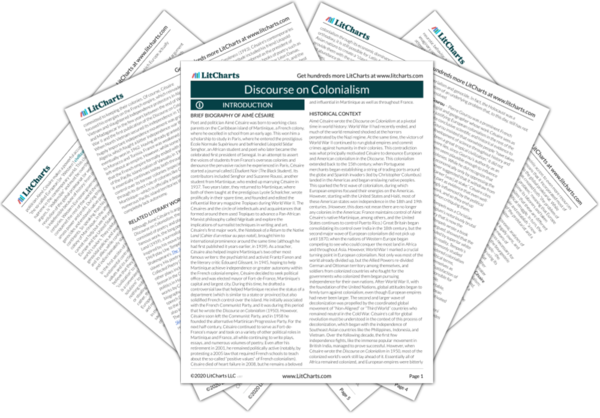Proletariat Quotes in Discourse on Colonialism
A civilization that proves incapable of solving the problems it creates is a decadent civilization.
A civilization that chooses to close its eyes to its most crucial problems is a sick civilization.
A civilization that plays fast and loose with its principles is a dying civilization.
The fact is that the so-called European civilization—“Western” civilization—as it has been shaped by two centuries of bourgeois rule, is incapable of solving the two major problems to which its existence has given rise: the problem of the proletariat and the colonial problem; that Europe is unable to justify itself either before the bar of “reason” or before the bar of “conscience”; and that, increasingly, it takes refuge in a hypocrisy which is all the more odious because it is less and less likely to deceive.
Europe is indefensible.
Apparently that is the conclusion the American strategists are whispering to each other.
That in itself is not serious.
What is serious is that “Europe” is morally, spiritually indefensible.
And today the indictment is brought against it not by the European masses alone, but on a world scale, by tens and tens of millions of men who, from the depths of slavery, set themselves up as judges.
The salvation of Europe is not a matter of a revolution in methods. It is a matter of the Revolution—the one which, until such time as there is a classless society, will substitute for the narrow tyranny of a dehumanized bourgeoisie the preponderance of the only class that still has a universal mission, because it suffers in its flesh from all the wrongs of history, from all the universal wrongs: the proletariat.












